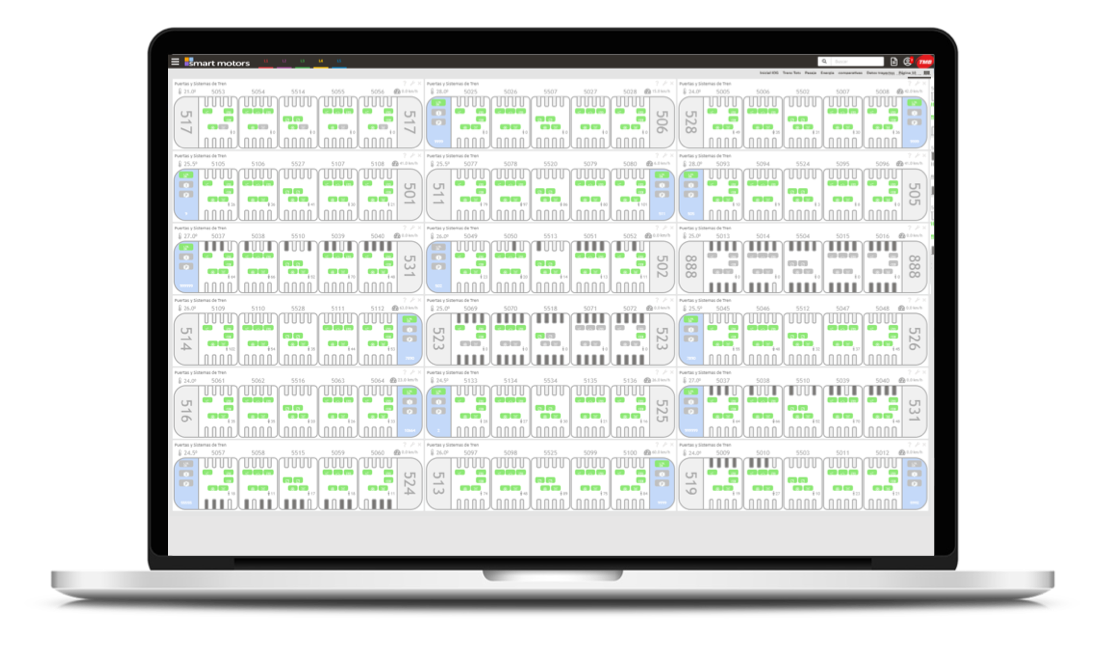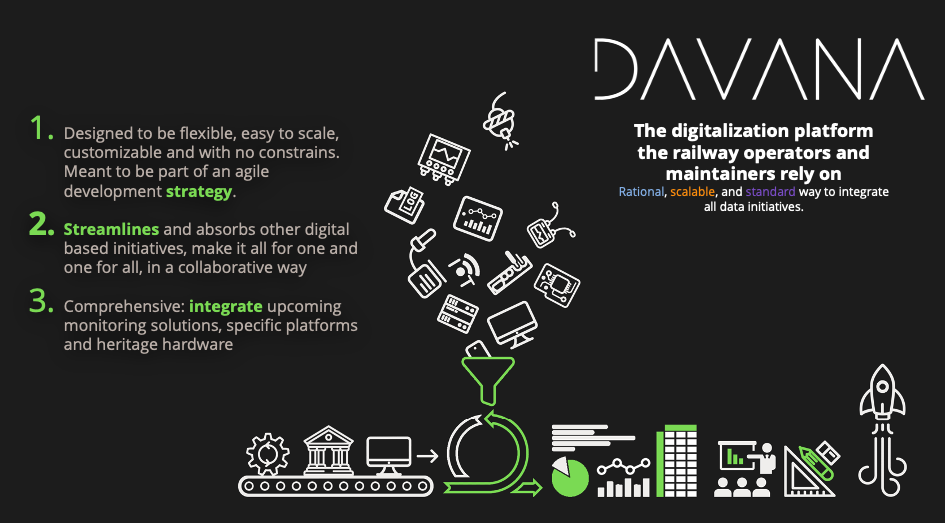DAVANA is the perfect market place for real-time data acquisition solutions for railway assets.
DAVANA provides the context for its correct interpretation and use, offers a space to integrate all existing data analytics or offers the tools to carry it out and has stipulated procedures to maximize its use within the organization in which it is implemented. Basic aspects are guaranteed, such as data security, user and role management, system administration, etc.
But DAVANA was not our first iteration. Since 2009, smart motors has acquired a know-how that has led us to offer this innovative and totally designed proposal for the railway sector.
At the start of smart motors, Digitization was seen as futuristic. When you googled “monitoring” for any railway element, the search engine offered few products that were really a monitoring solution. Then, what was a trend became normal and monitoring solutions for track, catenary, pantographs, switches, track circuits, fans,... with very good performance began to appear. But it was not enough to trigger its extensive use, since digitialization, to really have the desired effect, must entail a change, an adaptation in the organizational structure that allows it to 'absorb' and 'put into practice' the knowledge generated.
We realized that the extended approach of hosting data from different sources in different programs went against the generalization of monitoring and we were the first to converge all our programs to DAVANA. For the operator or maintainer, each new program becomes one more task to be carried out, with features, a way of using it... . For this reason, the use of comprehensive digitization platforms is so relevant, which can host and process the data from the different signaling elements, infrastructure, rolling stock, support elements, etc.

In the current context, it is nothing new to state that it has become a priority to seek new ways of working that respect the environment. We have to make every km of road travelled profitable, justify each maintenance, lengthen the lifecycle of our products, in short, reduce the ecological footprint to a minimum.
We must chart a new path, a new strategy, and part of it is to give "data" the importance it deserves. For example, using the data to assess certain traditional processes and comparing them with the data obtained from the optimized processes. Another example is the use of data to reformulate the concept of MTBF, due to the importance that this has in the number of annual preventive maintenance that are carried out, for an indicator that collects the real state of the asset, according to the state information. what about him. One could write at length on this subject.
However, there are not many unified Digitalization Platform solutions on the market, and if you want to check it out, I invite you to google it. And it is no coincidence, but rather that, at smart motors, he has been in this sector for a long time, perceiving the needs and trying to solve them.
DAVANA has proven to be a great option, both for visualization and for data processing. DAVANA provides uses of Business Intelligence from a perspective that is more committed to the processes of the sector and is not limited to 'finite' logics and treatments, but rather adapts to each situation, to each client.
And this is how DAVANA has also become a market place in which the different technologists who include monitoring systems in their products can make themselves known to the users of the platform. Precisely, to date, we have integrated products from renowned companies in the railway sector such as RIVI, ALSTOM, COUNTEREST, SKF, etc.





